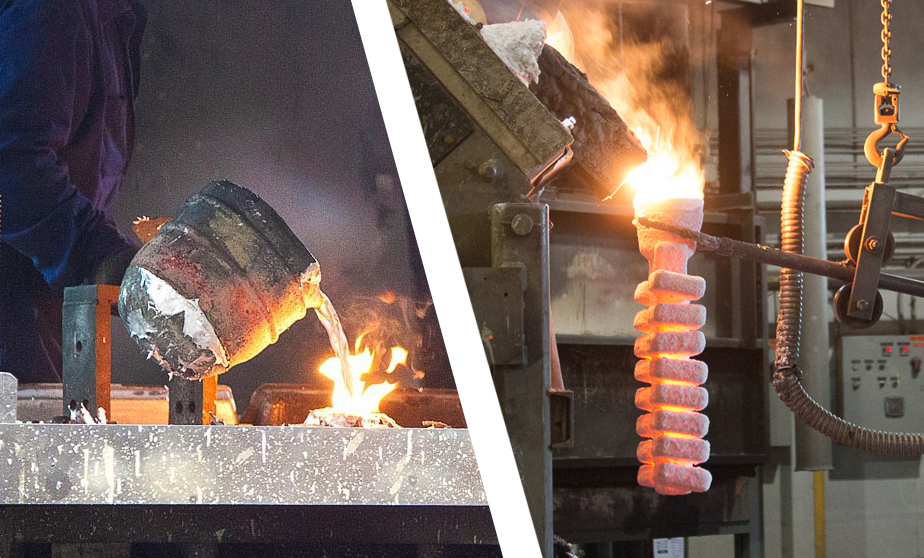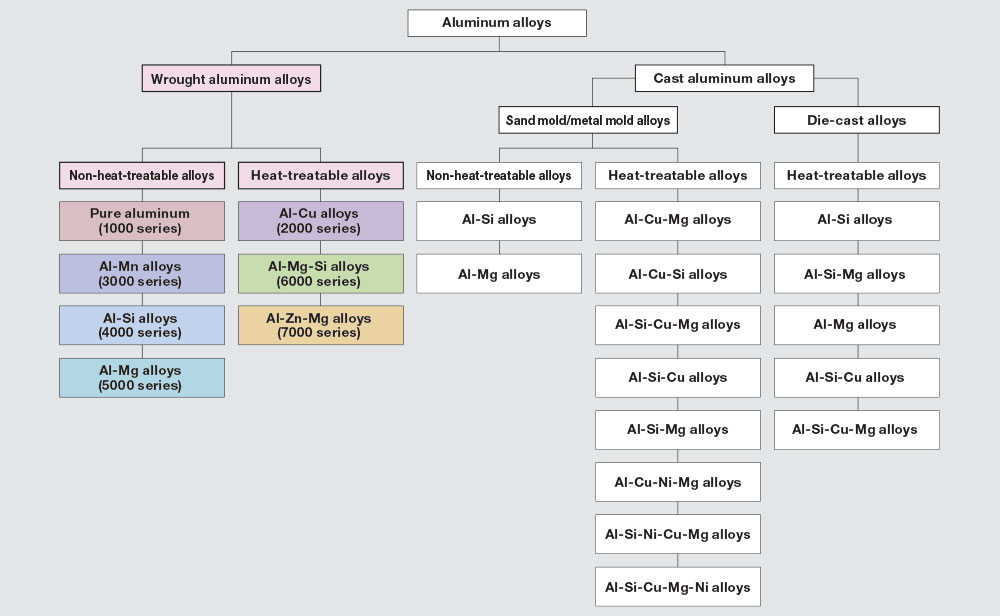The Best Guide To Alcast Company
The Best Guide To Alcast Company
Blog Article
Getting My Alcast Company To Work
Table of ContentsA Biased View of Alcast CompanyEverything about Alcast CompanyAn Unbiased View of Alcast CompanyGetting The Alcast Company To WorkThe Best Strategy To Use For Alcast CompanyWhat Does Alcast Company Mean?
Chemical Comparison of Cast Aluminum Alloys Silicon advertises castability by lowering the alloy's melting temperature level and boosting fluidity throughout casting. In addition, silicon contributes to the alloy's stamina and use resistance, making it useful in applications where resilience is essential, such as vehicle components and engine components.It additionally boosts the machinability of the alloy, making it less complicated to process into ended up products. By doing this, iron adds to the overall workability of aluminum alloys. Copper boosts electric conductivity, making it advantageous in electrical applications. It additionally improves deterioration resistance and contributes to the alloy's overall strength.
Manganese adds to the strength of aluminum alloys and boosts workability. Magnesium is a light-weight element that gives strength and impact resistance to light weight aluminum alloys.
Get This Report about Alcast Company
Zinc boosts the castability of light weight aluminum alloys and helps control the solidification process during casting. It enhances the alloy's stamina and firmness.

The key thermal conductivity, tensile strength, yield strength, and prolongation vary. Amongst the above alloys, A356 has the highest possible thermal conductivity, and A380 and ADC12 have the lowest.
The Definitive Guide for Alcast Company

In precision casting, 6063 is well-suited for applications where intricate geometries and high-quality surface finishes are critical. Examples include telecommunication enclosures, where the alloy's superior formability permits streamlined and aesthetically pleasing styles while preserving architectural honesty. Similarly, in the Lighting Solutions sector, precision-cast 6063 elements develop classy and effective lights fixtures that need complex shapes and excellent thermal efficiency.
It results in a better surface area finish and much better deterioration resistance in A360. The A360 exhibits exceptional elongation, making it perfect for complex and thin-walled parts. In accuracy casting applications, A360 is appropriate for industries such as Customer Electronic Devices, Telecommunication, and Power Devices. Its improved fluidity allows for complex, high-precision elements like mobile phone coverings and communication tool housings.
3 Simple Techniques For Alcast Company
Its unique homes make A360 a valuable option for precision spreading in these markets, improving product sturdiness and quality. Foundry. Light weight aluminum alloy 380, or A380, is an extensively utilized spreading alloy with several unique attributes.
In precision casting, light weight aluminum 413 beams in the Consumer Electronics and Power Equipment sectors. This alloy's premium deterioration resistance makes it a superb selection for exterior applications, guaranteeing resilient, long lasting items in the pointed out markets.
The Buzz on Alcast Company
The aluminum alloy you pick will substantially web affect both the casting procedure and the buildings of the final product. Since of this, you should make your decision carefully and take an enlightened strategy.
Determining the most suitable light weight aluminum alloy for your application will certainly mean considering a broad array of attributes. These relative alloy attributes follow the North American Die Casting Organization's guidelines, and we've divided them right into two groups. The initial classification addresses alloy qualities that affect the manufacturing process. The second covers attributes influencing the residential properties of the final product.
Fascination About Alcast Company
The alloy you select for die casting straight impacts numerous elements of the casting process, like how simple the alloy is to collaborate with and if it is vulnerable to casting defects. Hot cracking, additionally referred to as solidification breaking, is a common die casting defect for light weight aluminum alloys that can lead to inner or surface-level rips or splits.
Specific light weight aluminum alloys are more prone to warm fracturing than others, and your option should consider this. It can harm both the cast and the die, so you need to look for alloys with high anti-soldering residential or commercial properties.
Rust resistance, which is currently a notable attribute of light weight aluminum, can vary substantially from alloy to alloy and is a crucial particular to take into consideration relying on the ecological problems your product will be exposed to (aluminum foundry). Use resistance is one more residential property typically sought in aluminum items and can differentiate some alloys
Report this page